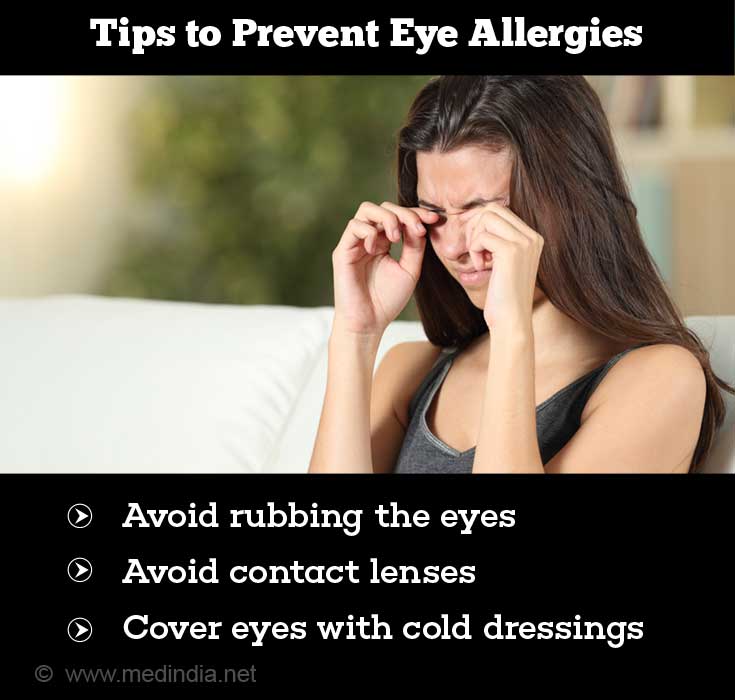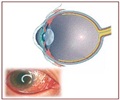- Treating Allergic Conjunctivitis: A Once-Daily Medication that Provides 24-Hour Symptom Relief - (https://www.ncbi.nlm.nih.gov/pmc/articles/pmc5010431/)
- Redness-Relieving Eye Drops - (https://www.aao.org/eye-health/treatments/redness-relieving-eye-drops)
- Eye Allergy Diagnosis and Treatment - (https://www.aao.org/eye-health/diseases/allergies-diagnosis)
- Eye Allergy - (https://acaai.org/allergies/types/eye-allergy)
- Eye Drop Tips - (https://www.glaucoma.org/treatment/eyedrop-tips.php)
About
Eye allergies are treated with different types of drops such as lubricants, vasoconstrictors, antihistamines, mast cell stabilizers, NSAIDs and corticosteroids.
Eye allergies or ocular allergies are a very common problem and often a part of a general allergic reaction. They may be mild or severe. They may be acute (sudden appearing), seasonal (occurring in a particular season) or perennial (occurring anytime irrespective of season).
Seasonal allergies often indicate that the person is allergic to outdoor substances such as pollen or fungi found in that particular season.
In perennial allergy, the cause is generally present within the house such as dust mites or insects. Some allergy cases may be serious and could affect the cornea of the eye as well. These cases require treatment from a specialist to prevent complications such as blindness.
The most prominent symptom of eye allergy is itching of the eyes. Other symptoms include redness, increased tearing, feeling of a foreign body in the eye and swelling of the eyelids. The patient in addition often has a runny nose and may experience symptoms of asthma as well.
It is usually difficult to determine the cause of the allergy. The patient may have to undergo allergy testing to pinpoint the cause. A blood test to measure IgE antibody levels may be carried out to confirm the presence of allergy.
The best way to prevent eye allergies is to avoid the allergen. This is however not always possible. The patient is advised to avoid rubbing his eyes. He should cover the eyes with cold dressings. Patients using contact lenses are advised to use soft daily - disposable lenses or spectacles during the period of allergy.

Various types of eye drops are used to treat the condition. Using eye drops over oral drugs has several advantages – a high concentration of the drug is directly achieved at the eye, effect appears faster and side effects on other body systems are less. Eye drops used to treat allergies include:
- Lubricants
- Vasoconstrictor eye drops
- Anti-allergy eye drops:
- Antihistamines
- Mast cell stabilizers
- Antihistamines with mast cell stabilizing action
- Anti-inflammatory eye drops:
- NSAIDs (Nonsteroidal anti-inflammatory drugs)
- Corticosteroids(1✔ ✔Trusted Source
Eye Allergy Diagnosis and Treatment
Go to source)














